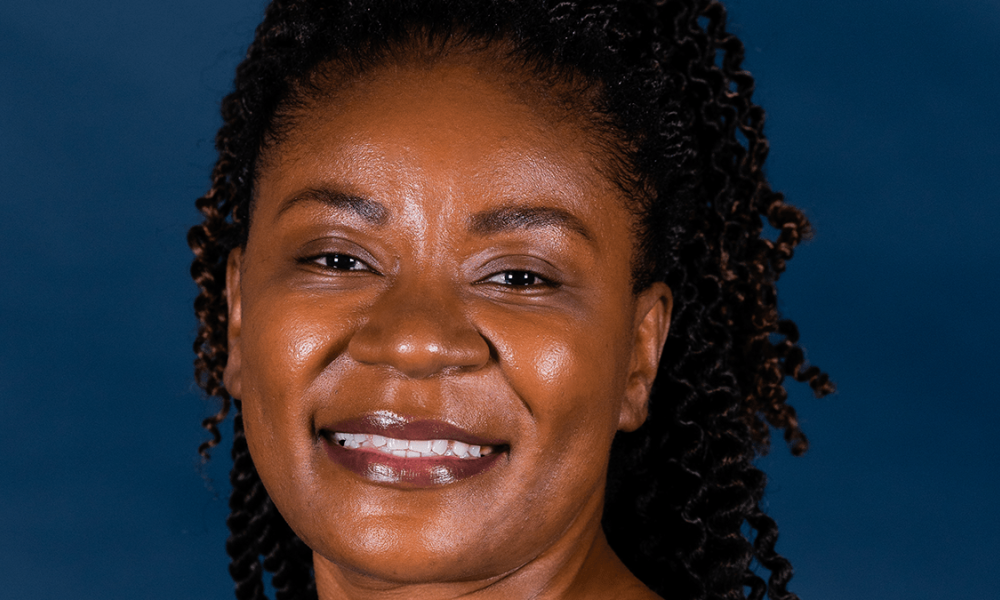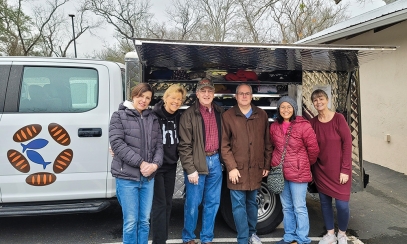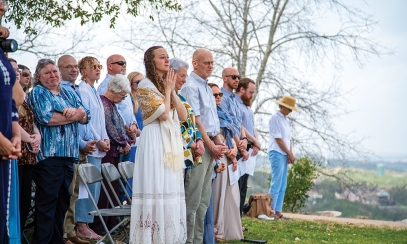
Ethics and Integrity in Ministry
Preventing Abuse With Education, Support and Love
Preventing Abuse With Education, Support and Love
April is national Child Abuse Prevention Month, a time for the community to reflect on the importance of working together to prevent all forms of child abuse and neglect. As I sit down to prepare this article, the words of my favorite fiction author, Agatha Christie, come to mind: “One of the luckiest things that can happen to you in life is, I think, to have a happy childhood.” What strikes me about this, is Christie’s observation that a happy childhood is a matter of luck, like a lottery. Some people will have it, and some won’t. This heartbreaking fact can be changed through education, support and a lot of love.
The Centers for Disease Control and Prevention (CDC) reports in the U.S. more than 3 million children each year are susceptible to domestic violence by adults. One in 4 girls and one in 13 boys experience child sexual abuse at some point. Alarmingly, 91% of this abuse is perpetrated by someone the child or the child’s family knows.
In the Ethics and Integrity in Ministry (EIM) training program, “Fulfilling Our Commitment to Heal and Protect,” one of the victims testifying about her experience remarked that “a person does not just outgrow” a negative childhood experience such as sexual abuse. As the child grows into adulthood, the adversity of abuse, whether sexual, physical or emotional, results in physical and emotional health consequences well into adulthood, effecting a fundamental problem that can have long-term impact on health, opportunity and well-being. Indeed, child abuse is not simply outgrown as the child gets older. That is why it is imperative for the community to do everything in our power to not only prevent child abuse, but also promote healing of children already harmed by it and accompany them in their healing journey into adulthood.
As we mark 20 years since the U.S. Catholic Bishops, through the Charter for the Protection of Children and Young People, publicly “expressed great sorrow and profound regret” for child sexual abuse by Catholic clergy and pledged “deep commitment to creating a safe environment” within the church, let us take a look at the accomplishments of the diocesan Safe Environment program, conducted through the diocesan EIM Office.
A culture of protection: With 236 trained facilitators in the diocese, the EIM program trains adults in right relationship and abuse prevention concepts. Adults are not only educated on prevention and interruption of child abuse, but also informed of mandatory reporting of child abuse. The first thing to do is alleviate immediate danger by calling 911 or the Texas Abuse Hotline at 1-800-252-5400. Do not engage the alleged abuser. For situations that do not need to be investigated right away, use the Hotline website to make a report. To learn more and to make a report, visit the Texas abuse hotline at www.txabusehotline.org. If the abuse involved a church minister, please also notify the diocese at this link: www.austindiocese.org/report-to-diocese.
Enforcing a code of conduct: EIM screens adults who work with minors and vulnerable adults. Only those priests, deacons, religious men and women and volunteer adults who have passed a background check and have attended a training workshop within the last three years are EIM compliant and therefore permitted to serve in public ministry. Through this program, more than 36,000 applications have been received and approved for ministry in our diocese. That’s 36,000 adults who have pledged to take responsibility to protect children and young people from all kinds of abuse, thereby creating a safe environment for them and doing their part to ensure a happy childhood. To begin the compliance process, visit www.austindiocese.org/eim-status.
Promoting healing: EIM, through the coordinator of Victim Assistance and Pastoral Counsel (VAC), serves as a first contact for individuals who have experienced abuse by someone in the church. The Office of EIM does not have a therapist but provides referrals and resources to assist with the healing process. For more information on healing and abuse visit www.austindiocese.org/healing-abuse-prevention.
Accountability: The Diocesan Review Board, a panel of mostly lay professionals that advises Bishop Vásquez, reviews diocesan practices, policies and procedures for the implementation of the Charter for the Protection of Children and Young People.
In Luke’s Gospel, Jesus called the children to him saying, “Let the little children come to me, and do not hinder them, for the kingdom of God belongs to such as these.” This April as we prepare our hearts for the risen Lord, let us remember in prayer all the children everywhere, that they may have a blessed and happy childhood. As Nelson Mandela said, “There can be no keener revelation of a society’s soul, than the way it treats its children.”
Nwazi Nyirenda is the director of Ethics and Integrity in Ministry for the Austin Diocese. She can be reached at (512) 949-2446 or nwazi-nyirenda@austindiocese.org.



